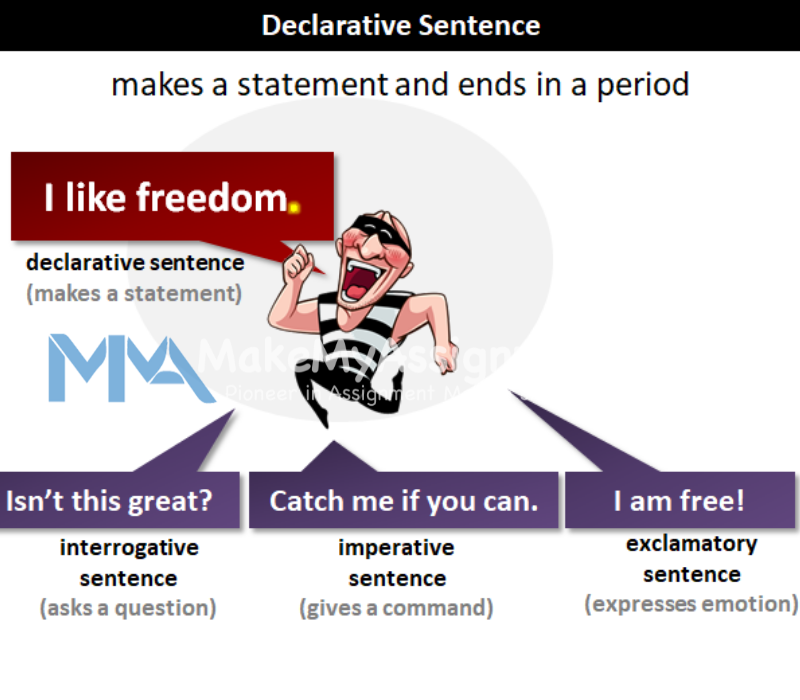
A short guide on Declarative Sentence
A declarative sentence is a kind of statement that is majorly used in English sentences because they help convey the information easily.
Like imperative sentences, exclamatory sentences and interrogative phrases, declarative sentences are among the four forms of sentences used in the English language. Each one of them comes with a distinct purpose. The only purpose of a declarative sentence is to present information directly. You can call a sentence declarative when it expresses an opinion, a fact, observation or description in a simple way.
Like any other type of sentence, a declarative statement includes both a subject and a predicate. Here, the noun in a sentence is the subject itself responsible for acting. In contrast, the predicate is the verb, also known as the action. The combination of subject and predicate is known as an independent clause. In comparison to other types of sentences, declarative sentences are always finished with a period.
Types of declarative sentences
It is often said that declarative sentences might be composed of many independent clauses or a single independent clause followed by a dependent clause. There are four main types of declarative sentences, and they mostly differ based on the number of clauses they contain. If you want to learn more about them, keep reading this blog further-
Simple sentence
When a sentence includes just one independent clause and no further components, then it is considered simple.
Compound sentence
When there are two or more clauses in a sentence, then it is considered compound, each of which can be read as a complete thought. These kinds of sentences are frequently joined by coordinating conjunction, which requires a comma.
Complex sentence
A complex sentence is one that includes at least one individual clause and more than one subordinate clause. Complex sentences also contain more than one independent clause.
Complex-compound sentence
This type of sentence includes a minimum of two clauses independent of one another, where one or more clauses are subordinate to one another. They kind of satisfy the requirements of both compound and complex sentences in equal measure.
The order of the words is very important in declarative sentences.
Is there a difference between sentences that ask a question and those that make a declarative statement?
Questions are often included in interrogative sentences, whereas statements are made using declarative sentences. There’s a distinct set of guidelines for declarative statements in the English language. For example, the question mark comes at the beginning of the interrogative sentence, while the period comes at the end of the declarative statement.
Is there a difference between declarative sentences and imperative sentences?
Imperative statement functions based on the instructions and requests. It is often utilized to give someone orders, whether nicely or not. The standard type of statement that doesn’t require a subject is an imperative statement. At times, the person to whom the speaker is talking is often assumed to be the subject of an imperative sentence. Therefore, there is no need to stay what the sentence is about because it is very clear. Imperative sentences often begin with a verb, but they can also begin with a subordinate phrase or a requesting word like ‘Please.’ You can always end it with a period or an exclamation mark.
Hope that this blog was useful for you. Apart from this, if you ever need help regarding your academic papers or assignments, feel free to contact our online assignment writing services for professional help and guidance. Our experts are available 24*7 at your service, delivering high-quality assignments at affordable prices. Furthermore, we make sure that students receive the best products from our services, which is why we provide them with unbeatable offers and benefits.



